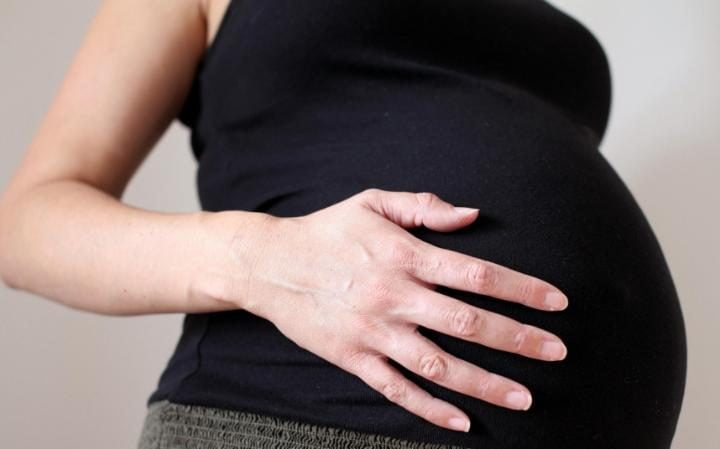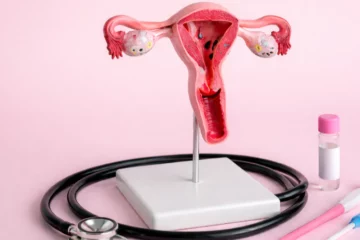
Good news today for egg lovers. Official channels have deemed raw eggs safe to eat for even pregnant women, u-turning on 15 years of advice to the contrary by the Advisory Committee on the Microbiological Safety of Food.
The governmental body had previously recommended ‘vulnerable’ groups such as the very young, the very old or those who are pregnant should avoid a runny yolk like Boris Johnson on a dance floor.
The new directive for “Red Lion” stamped eggs has been attributed to tighter hygiene standards that ensure UK hen farms are salmonella-free. Vaccinations, the keeping of eggs cool when in transit, enhanced testing and improved farm hygiene such as pest control has paved the way for risk-free eggs.
Eggs may be off the worry list, but if you are in your first, second or third trimester a conflicting soup of food and drink advice still awaits. Should you eat raw fish? How much is too much caffeine and what about peanuts?

It is not just us Brits who feed off culinary horror stories for soon-to-be-mothers; ancient Chinese culture dictates eating crab could make your baby badly behaved or born with 11 fingers, and in some parts of Tanzania women avoid meat in case their unborn child takes on the characteristics of that animal.
To separate fact from fiction (and downright madness) we spoke toformer nurse and midwife Clare Byam-Cook, whose client list includes Helena Bonham Carter and Kate Winslet, about what is safe to consume when you are expecting…
PEANUTS
“Food advice is always changing, and peanuts are a prime example,” says Byam-Cook. “When I was giving birth 30 years ago it wasn’t on the list of foods to avoid. Then everyone panicked and you couldn’t even eat one peanut. Now it has gone the other way and some think they can be beneficial – reducing the chances of your baby developing a peanut allergy.”
The NHS currently advises that, unless you’re allergic to them, peanuts are safe to eat and no clear evidence suggests they relate to your baby developing an allergy or not.
“Mothers need to exercise common sense and not be panicked about the latest bit of research. If in doubt, do your own.”
RED MEAT
This is a definite no-no. “The main problem with red meat is that if it is under cooked it can contain things like toxoplasmosis,” explains Byam-Cook. “You must cook it properly.”
Toxoplasmosis is a rare parasitic disease that often doesn’t have symptoms, and can cause miscarriage, still birth or other complications.
Cold cured meats such as salami, parma ham, chorizo or pepperoni may also contain toxoplasmosis-causing parasites. Freeze the meat or cook it to destroy the microorganisms and ensure you don’t become ill.
“Salami is fine if you cook it on a pizza, but not necessarily raw.
“Liver is best avoided because it contains too much vitamin A, which can harm the baby,” adds Byam-Cook.
CAFFEINE
“Anything that’s not good for you when you are not pregnant is even more so when you are. Excess caffeine can contribute to a low birth weight, which can put your baby at risk of general development issues,” says Byam-Cook
The NHS recommends no more than 200mg of caffeine a day. There is 75mg in a mug of tea, 140mg in a mug of filter coffee and 40mg in a can of coke.

SUSHI
“People think even one mouthful of sushi is like the equivalent of taking a hard drug like cocaine. Sushi from raw, wild fish might contain some small little worms, which will harm the mother and give her a runny tummy, but not the baby,” says Byam-Cook.
“If the sushi is frozen or cooked it kills any worms. If you love something like this, do your research. Don’t do anything in excess, use moderation.”
It is recommended pregnant women are especially careful with tuna, as it contains more mercury than other types of fish. Stick to no more than two tuna steaks a week.
SOFT BLUE CHEESE
Danish blue, gorgonzola and roquefort cheese are always best avoided unless they have been cooked. “Soft blue cheese can contain bacteria and listeria is the real thing you are worried about,” says Byam-Cook. “That can definitely harm the baby and lead to abnormalities. Avoid these from day one. There are so many other cheeses pregnant women can eat.”
Cottage cheese, mozzarella, feta, ricotta, halloumi and goats’ cheese are ok as they are made from pasteurised milk rather than mould ripened.

CHOCOLATE
A study from the University of Helsinki made links between women who eat chocolate when pregnant and happier more gregarious babies. The theory is that the serotonin, the happy hormone, is somehow passed on to the baby in the womb. This is far from a proven formula but chocolate is fine to eat during pregnancy.
Byam-Cook has some advice: “Idiots may think, great, and eat 10 bars a day. But chocolate is quite fattening and obesity has a very detrimental effect during pregnancy. It places strain on parts of your body, make you more likely to have a caesarean, give birth to an overweight baby or have complications in both pregnancy and birth.”
HERBAL TEA
Exercise moderation. The Food Standards Agency (FSA) recommends no more than four cups a day during pregnancy.
“Most types will have been properly prepared and freeze dried so that any bugs that might have been on them won’t still be there when you are drinking them,” says Byam-Cook “In any event, if you pour boiling water on them, any bacteria should be killed off.”
Remember to factor in that green tea contains caffeine.
[Source:- Telegraph]




